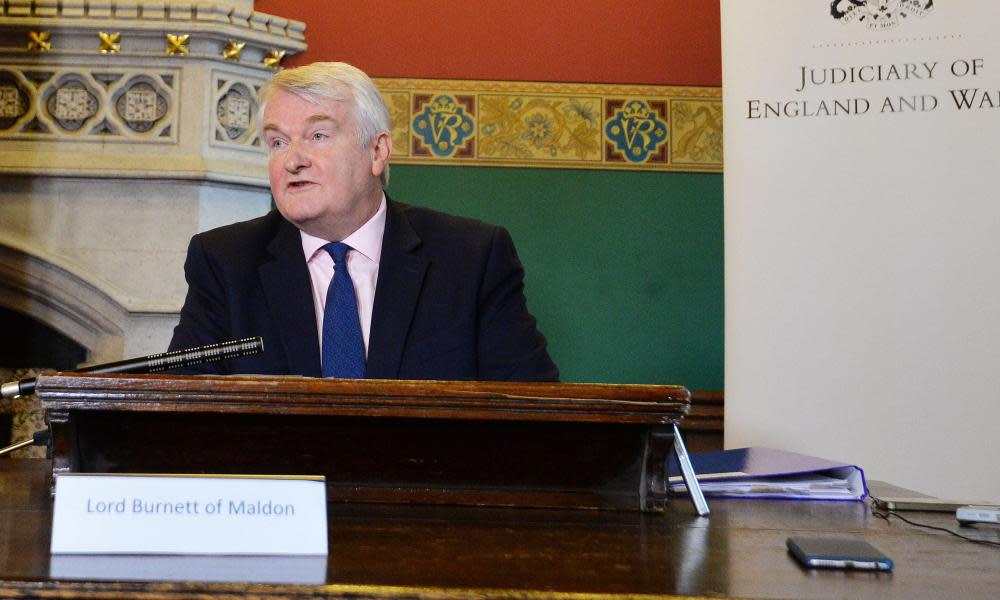Judges get counselling because of 'relentless' stream of serious cases

Judges are receiving therapeutic support from psychologists because of the strains of their workload, the number of sexual abuse cases they have to hear and threats made against them, the lord chief justice has revealed.
In his annual report, Lord Burnett of Maldon says “low morale” among the judiciary is also due to “poor physical working conditions” and unsatisfactory levels of pay and pensions.
“Many judges are obliged to cope with a relentless stream of cases involving serious sexual, physical and emotional abuse,” Burnett’s report states. “An enhanced welfare programme has been introduced to ensure appropriate assistance and support.
“The programme includes an annual one-to-one welfare conversation with psychologists for judges identified as being at potential risk because of the nature of their caseload.” Telephone welfare support lines have been set up and remote “e-learning” sessions on resilience and stress management are available.
The lord chief justice is due to appear before the Commons justice select committee next week to give evidence about the state of the justice system in England and Wales.
“I view the low levels of morale within the judiciary with considerable concern,” he says in his report. “The poor state of many of our buildings is a contributing factor. So too is the increasing workload in most jurisdictions and the reduction and high turnover of staff.”
Attempts to recruit more judges to the high court have failed to attract a sufficient number of sufficiently qualified candidates. The last judicial attitudes survey, in 2016, found that only 2% “felt valued by government”.
Burnett’s reports adds: “A small number of members of the judiciary and their families are subject to threats, verbal abuse and, occasionally, physical attacks from litigants and members of the public. This has led to widespread concern.”
Extra efforts have been made to enable judges to remove personal data from documents. “A new judicial harassment protocol has been agreed with the National Police Chiefs’ Council to raise local police awareness and inform an appropriate police response to crimes committed against members of the judiciary by reason of, or connected with, their judicial office,” the report notes.
Part of the additional workload, Burnett says, is a sharp rise in the number of applications lodged with the criminal appeal office, which received more than 5,000 new conviction and sentence applications to add to the approximately 3,000 cases already outstanding in the office.

 Yahoo News
Yahoo News 
